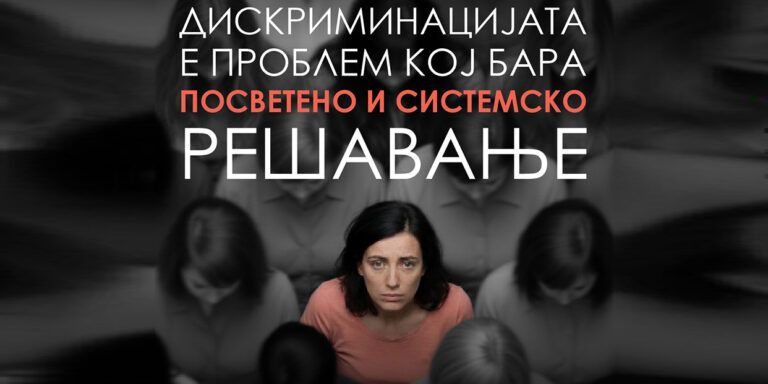168 Years Later, Fight of Textile Workers for Better Working Conditions Continues
When the women working in clothing and textile industry publicly protested in 1857 in New York, asking for better working conditions and salaries, they actually started a series of protests whose demands expanded in the course of the years also to cover women’s democratic right to vote, demand for equal rights to men, holding a public office, etc.
The changes that took place have been undisputable until nowadays, but the fight is ongoing. In Macedonia, the work of the women in textile industry has remained uncertain and challenging. On this topic, and on the occasion of 8th March, the International Women’s Day, we spoke with Kristina Ampeva, the President of “Loud Textile Worker” association, which actively advocates for the rights of the textile workers in Macedonia, especially in the eastern region.
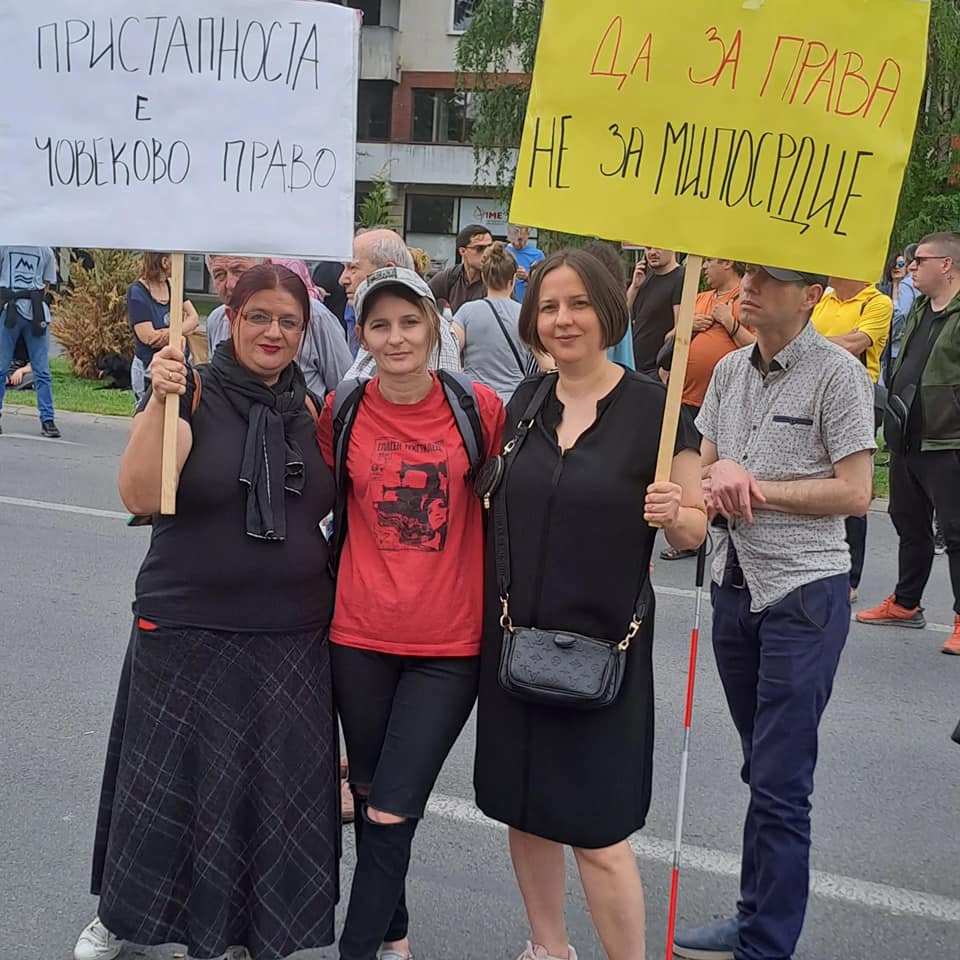
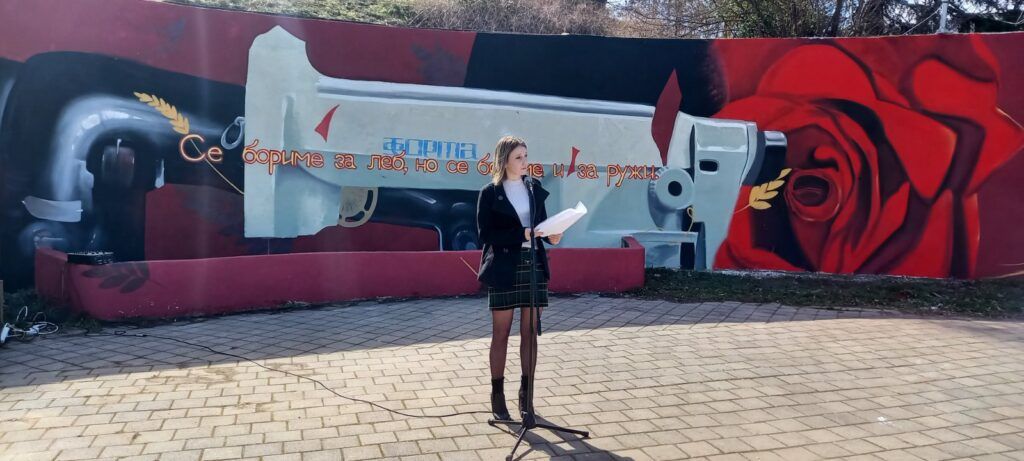

Speaking about the beginnings, Ampeva remembers 2016, when, as she says “several of us, female textile workers who were part of this sector, publicly spoke about everything that had happened behind the doors of the textile factory floors. About the mobbing, discrimination, unsafe and inhumane conditions, in rooms where there was neither heating in winter nor cooling in summer. Or, as my senior colleagues explain, until then it was from 6 to 6 for 6. Or, working from 6 am to 6 pm for 6,000 denars, because at that period, the textile workers were paid under the minimum guaranteed salary”. The association worked on changing this situation. “From the then salary of 8,000 denars, in these years that the association is active, we have reached 24,000 denars. Or, I can freely say that what the trade union members were silent about since the independence of the country, as activists we have spoken about loudly and we have achieved it.” She also reminds about the lack of cooperation with the inspection and the fear to report irregularities. “With lot of work and explanation of the situation, we have become partners with this institution that works according to the goal for which it has been established, to protect workers’ rights. We also initiated that Sunday is a non-working day, and now the sectors that primarily employ women have one day of rest in the week which did not use to be the case before”, says the president of “Loud Textile Worker”.
Unfortunately, according to Ampeva, the health crisis of 2020 stressed the vulnerability of the economy, especially in the textile sector. The lack of clear vision and investments in the sector has brought it to the threshold of extinction, although it has a huge potential. “This is a branch that employs around 30,000 wormers, mainly women. The women of this eastern region carry the economy on their shoulders, and unlike other planning regions, you will notice that here we have the biggest employment of women and their inclusion in the labour market.”
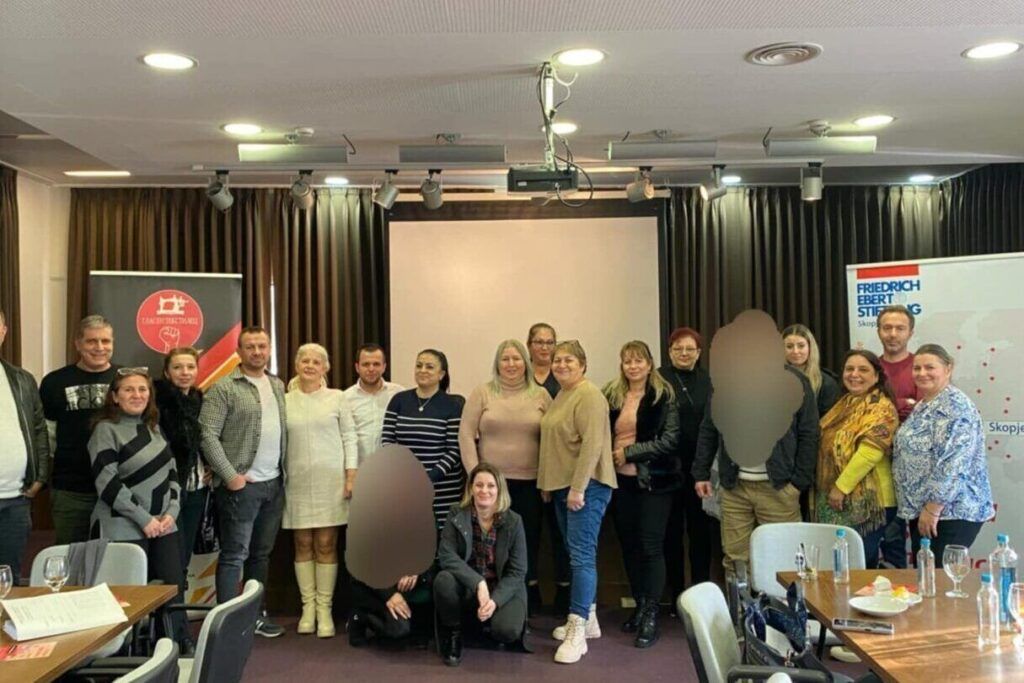
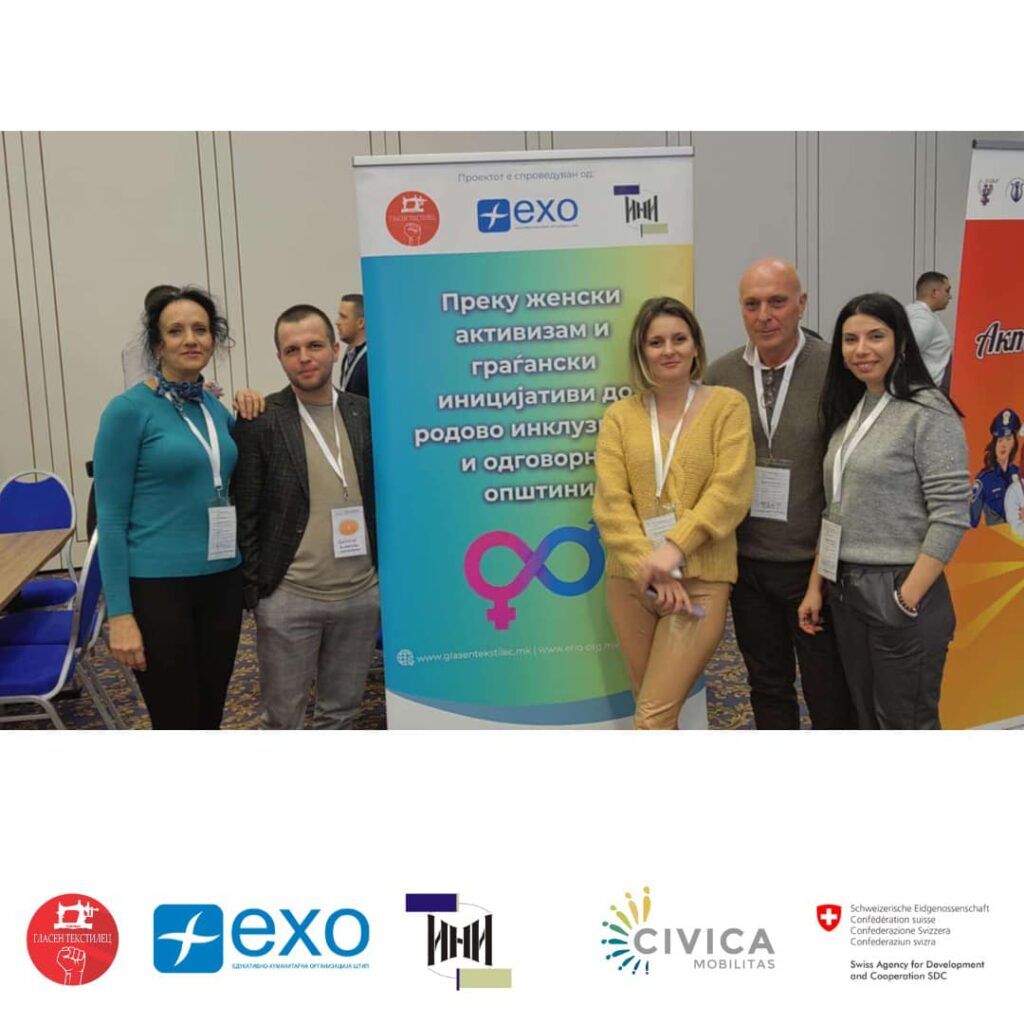

For the president of “Loud Textile Worker”, this is an eternal fight in the Balkan countries. “We need strong CSOs, that will empower the women, especially outside the capital, lobbying loudly to solve the local community problems at local, but also at national level. Therefore, I think that the project supported by the Swiss Government via Civica Mobilitas that we have been implementing together with the Educational Humanitarian Organization (EHO) from Shtip and the Initiative of Unemployed Intellectuals (INI) from Vinica and it is implemented in Shtip, Delchevo and Vinica, is a way how the women can impose themselves as factors in local communities”. With women activists and women who actively work in the field, they have been identifying the local problems and priorities of women and girls in Shtip, Delchevo and Vinica. Then, they ask the municipal authorities to support them and solve part of these problems. They also involve women in the advocacy activities before the institutions, to show them that they are important and that they have to be involved in the process of creating and making decisions. “I think that these projects are very important to empower the women in a certain community, especially in the smaller places, where the men are mayors, municipal council members, managers, main the municipal sectors, men have the main and last word and they know what is the best, and the women are the ones that should work, take care of the children and the elderly, they should vote, but they should not interfere in what the men have decided is important to do, without thinking about different people, communities, women, people with disabilities, etc.”, says Ampeva.
For nine year already, “Loud Textile Worker” has been successfully working on supporting the textile workers via free legal aid, training and campaigns that increase their knowledge about workers’ rights. “The textile workers have the right to be respected. With trainings and workshops we encourage them to fight for their rights and be aware that they are an important part of the workforce,” stresses Ampeva.

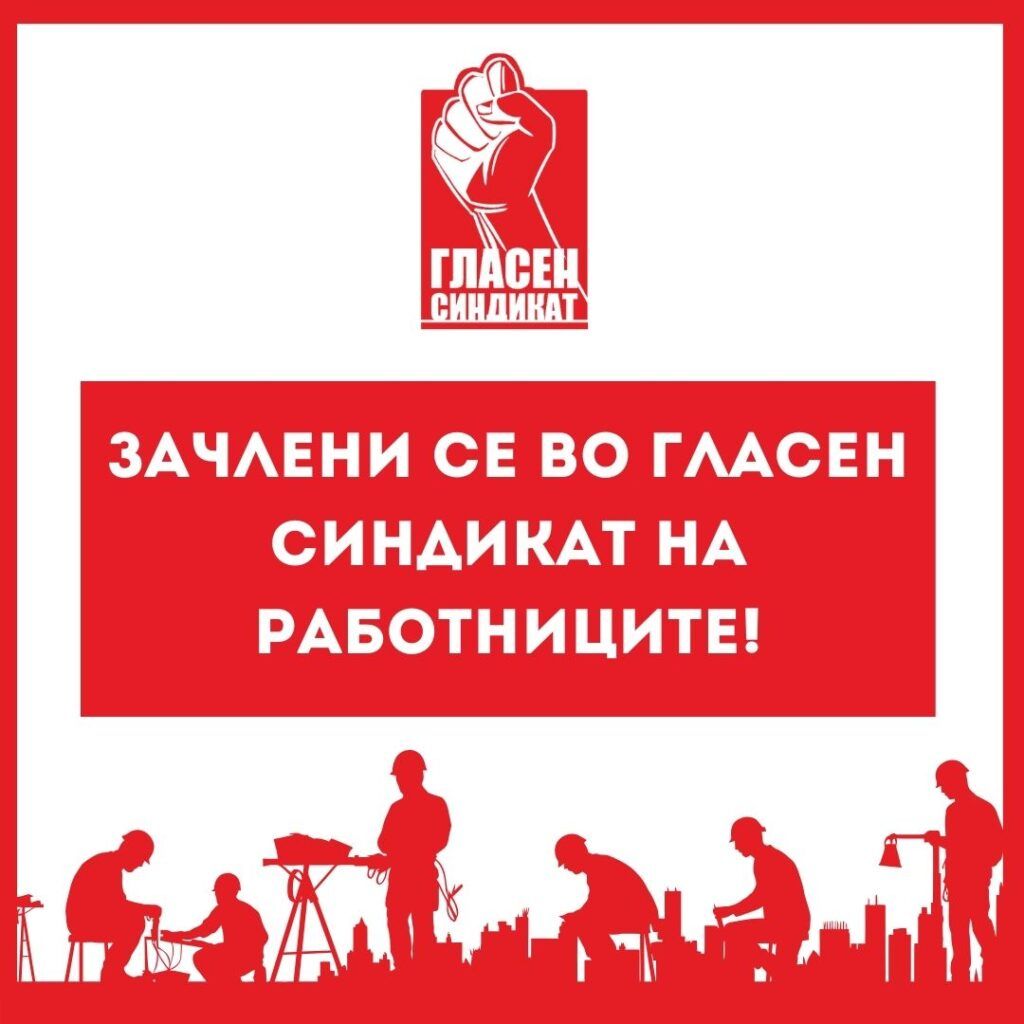
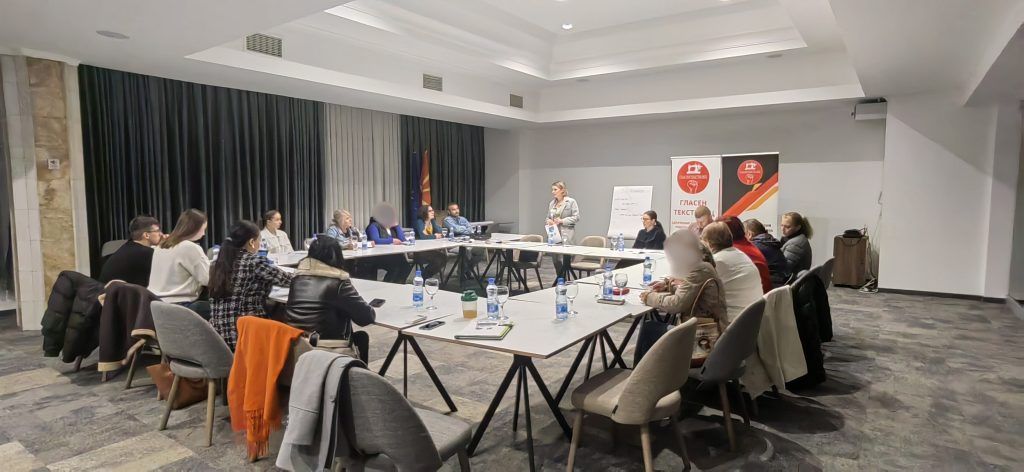
In order to achieve an even bigger progress, the association established “Loud Trade Union” in March 2024. “In a year, we have had really important results, we have 300 members that joined us themselves, despite all pressures. We have managed to keep many jobs, we have managed to sign a collective agreement at a company level, and in all companies where we have the majority of members, all rights from a job agreement are respected, including the payment of a holiday bonus, which has not been the case with the other companies where we do not have a trade union. I think that we are on the right way”, says Kristina Ampeva, although she is convinced that it will be difficult because of their integrity, but, that is how a real, workers’ trade union should look like. “I want this to be the trade union that was not there to protect me while I was working in inhumane conditions, and I needed it so much. Therefore, ‘Loud Textile Worker’ will be here for everybody who will join it and become its part.”
In the end, Ampeva calls upon all citizens and institutions to support the female workers in their daily struggles for better conditions and salaries. “Now, as the government strongly opposes the increase of salaries, we continue to fight for the rights of the workers and their recognition as movers of the economy,” she says and adds that in the 21st century “we must not allow that pregnant women are fired, that trade union organization is the grounds for firing people, that salaries are not paid, that there is mobbing and discrimination.
“Loud Textile Worker” continues to celebrate this fight also via activities for 8th March. The association will organize an open day in Shtip, where they will remind the textile workers that “they, just as their predecessors, have started the movement for better conditions, salaries and rights and that it must not stop, but it should continue.”
Together, we can change the future and make sure that the rights of the female workers will be more protected and respected!




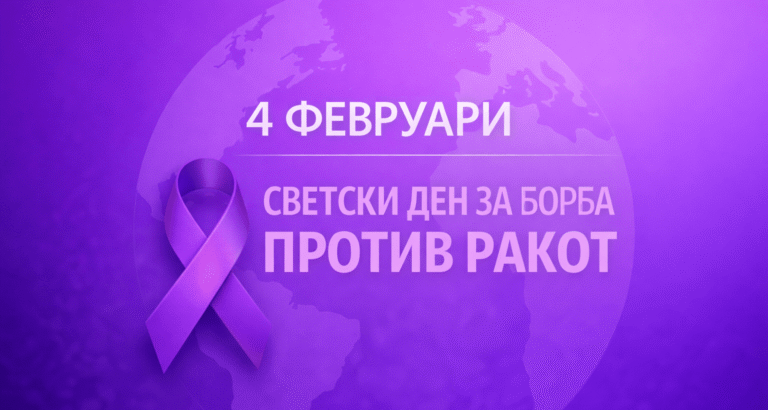

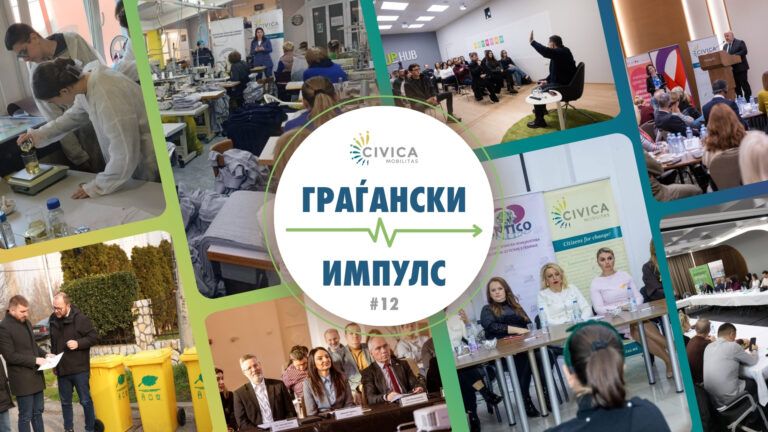
![Sre]ni praznici(2)](https://civicamobilitas.mk/wp-content/uploads/2025/12/sreni-praznici2-768x432.jpg)
